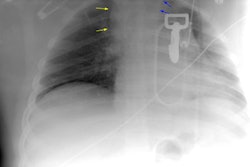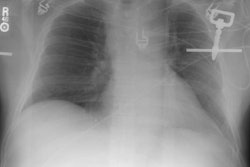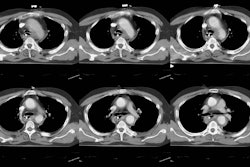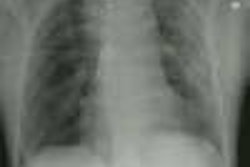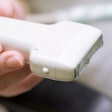Ann Surg Oncol 2001 Jan-Feb;8(1):20-4
Intradermal isotope injection: a highly accurate method of lymphatic mapping
in breast carcinoma.
Boolbol SK, Fey JV, Borgen PI, Heerdt AS, Montgomery LL, Paglia M, Petrek JA,
Cody HS 3rd, Van Zee KJ.
BACKGROUND: The combined approach of radioactive tracer and blue-dye mapping of
sentinel lymph nodes (SLN) has evolved into a safe and effective alternative to
routine axillary node dissection in specific patient populations with breast
carcinoma. The optimal route of injection for the isotope has not been clearly
defined. To assess the intradermal route of isotope injection, we prospectively
evaluated 100 patients with biopsy-proven invasive breast carcinoma with SLN
biopsy followed by planned axillary node dissection. METHODS: All patients were
given an intradermal injection of Tc-99m sulfur colloid and an intraparenchymal
injection of blue dye. All patients underwent a complete axillary node
dissection. Each sentinel node was serially sectioned and examined by
immunohistochemistry. RESULTS: Sentinel nodes were successfully identified in
99% of cases. Forty-six patients had axillary metastases; of these, four had
falsely negative sentinel nodes (false-negative rate, 9%). The false-negative
rate was 0 of 24 (0%) for T1 tumors, 2 of 18 (11%) for T2 tumors, and 2 of 4
(50%) for T3 tumors. Three of four patients with false negatives had palpable,
clinically suspicious axillary nodes found intraoperatively. If these cases are
excluded, the accuracy of the procedure was 100% for T1 and T2 tumors. Of the 42
positive axillae identified by SLNB (true positives), 40 were localized using
the intradermal injection of radioisotope; in 13 of these cases, this was the
only method that identified the true-positive node. CONCLUSION: These data
demonstrate that intradermal injection of radioactive tracer is an effective
method of localizing the SLN in cases involving small breast cancers. Further
investigation is warranted before this technique is adopted for use in larger
breast cancers. Intraoperative examination and biopsy of any suspicious
nonsentinel nodes are critical.




